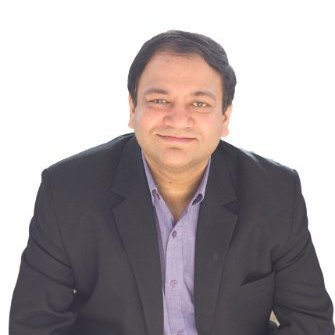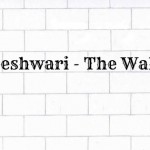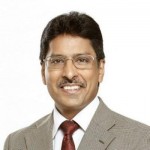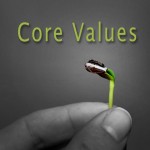Dr Deepak Malhotra is a doctorate in management studies with specialization in human resources; MBA in human resources; and holds a post-graduation diploma in personal management and industrial relations. Deepak has more than 21 years of cross-industry professional exposure in the best of the brands. He has worked in all distinctive areas of human resource management. He is currently associated in a group company of SREI, as Vice President-Human Resources. It is his vision to have an impact on the overall entrepreneurial leadership. He believes in the current economic scenario, we need to impact the bottom line through productivity.
To his credit he hosts a tweet chat, which is treading national #1, called #KeepThemEngaged. He has also launched a forum for current and future leaders, called #KeepThemEngaged, which is creating a lot of buzz, with a mass international and Indian leadership and one-click audience.
Rated in top 25 hr influencers and in the list of 101 inspiring gentlemen on twitter. His twitter handle: @HeadHR_Deepak
Here’s what we found about Dr. Deepak Malhotra in a close encounter with him!
Q – The 1st Job always holds a special place for an individual, where did you start your career?
A – My journey is very different and exciting. I am going to capture the same in my fourth book titled ‘Peeling potatoes’ to ‘writing books’.
Interestingly, back in 1995, I had joined the park group of hotels as a management trainee. Are you surprised? Don’t be, there is more to come!
I am a Hotel Management graduate from IHM Hyderabad. In my family, hotels were a taboo and they were not considered as great career options during that era.
I used to earn a stipend of Rs 2200/- to begin with and that was a good sum for those days. The journey from being the youngest chef to a Human Resource Head and a published author has been exciting. I think this journey makes a good plot for a Bollywood flick!
Apart from burning a lot of midnight oil, I had to put in a lot of hard work especially towards my studies till Doctorate Level. I always received plenty of support from my family, especially from my wife Sayani. Although it all looks like a fairy tale, my humble beginnings and hard work paved way to where I am today.
I had a career switch from a Chef to a Human Resource Head, via Training. It was like playing second innings in a test match, taking a fresh guard, unlearning everything, and relearning. Again, very exciting!
Q – Could you share your learnings of your 1st job?
A – Very importantly, hospitality industry teaches you to be people and customer centric, with loads of common sense in approach. Interpersonal skills, communication including active listening, presentation, media handling, grooming, and positive body language, managing numbers, data, art and science of human behavior were important apart from people skills, which always remained with me. Individualistic customer needs and approach towards them has always helped me till date, even with my internal customers.
I worked there for 5 years and I am sure the success I enjoy today is due to the experience I received then; as it laid the foundation. Hospitality made me adapt to difficult situations and tough conditions, and my lateral thinking was developed. It incorporated in me no fear to fail. I am sure the contagious smile I have till date is due to the time I spent there! As an individual I gained experience, and I was trusted with important roles.
Q – As an individual gains experience, they are given people management responsibility. Can you recollect who your 1streportee was & the experience of handling your 1st team?
A – You have to decide whether I was lucky or not so lucky. On the ninth day of my management training, I was forced to take up the role of a chef, as both my senior chef’s fell ill due to food poisoning. The circumstances forced me but I was up for the task. It was since that day, the management started giving me various responsibilities or rather, I took them up, whenever there was an opportunity.
As a chef in those early days, I had team members who had spent more number of years in the hotel than my age at the time (i.e. 20 in those days)! I quickly learned how to manage them. I also learned quickly that it was our success which was important.
Similarly, when I moved from hotels into human resources, my first role was interesting. I still think that even after twenty-one years of professional career, what keeps me going is my ability to learn every day with each of my interactions.
Q – What are your suggestions for effectively managing teams?
A – As a people’s manager, you would agree that in every organization there is diversity, generation gap, which generates different outlooks. Diversity impacts directly on individual’s skills or knowledge, confidence, multi-tasking initiative, ability to scrutinize challenges, and toil in teams. This is different for different age groups. There is no one-fit-for-all approach at an organization level.
Fully engaged score of 9 percent in the Indian context is quite alarming. Leaders in the long run should move from ‘team focused’ approach to a more ‘individual focused’ approach. We all are looking for engagement, as a state where a team member desires to go beyond the call of the duty.
Leaders must note that performance management system and career visions of the team members are viewed as the most important engagement drivers. When you hire talent, engage them, it is equally important to empower them as without empowerment talent is ZERO.
Q – Acquiring talent for an organization is an art, how do you go about doing it so well?
A – You need to first define for your organization ‘the ideal worker’, based on its core value system. I feel there are many ways to enable your resourcing team to hire the right man for right job. One side there is reference, portals, and head hunters. On the other side, keeping in mind we will have one of the youngest workforce in a decade or so, social media and technology act as great enablers. For example you can quickly check tweets of a senior profile candidate, and understand his/her thought process. Social Quotient will be very important with these one-clicks.
Q – In all these years of service, can you share with us, one of the toughest situations you have had to face at your workplace?
A – Managing diverse unions across India was one big challenge I have handled while in Aviation and Manufacturing. It was a great learning exposure, when you negotiate with up to seven unions together in one city. Thinking on the feet, keeping dignity of all involved, quick damage control, interpersonal skills, and some timely action always supported my work for the people and by the people.
I always emphasize to my teams that there is no substitute to hands on experience. Another challenge was when we dealt with fatal causalities. They were all learning exposures and made me a complete professional.
Q – What has been your biggest accomplishment so far?
A – There are many which come to my mind. To name a few top ones, which come immediately to my mind are: journey from a successful chef to a more successful human resources head, a top influencer on social media, a published author, and hosting a national #1 trending show #KeepThemEngaged.
Q – Your first book was completely out of the box. What do we have in store in the next lot?
A – Thank you. I appreciate your kind words. Yes, ‘Match the Age to Keep Them Engaged’ was different and I am thankful to Bloomsbury team for having faith in my abilities.
I am currently working on the second book titled ‘Hungry People, Better Results’. The USP of the book would be the interviews of the current leaders who have been continually successful, and their leadership traits. Some of these traits have never been discussed in any book. I am also trying to keep it very adaptable by ensuring we have small chapters and we also work on how to train a leader on acquiring these traits if s/he is lacking.
I have also launched a week back #KeepThemEngaged Forum in Social Media. This vibrant learning forum for leaders and future leaders, where we can learn from each other would be another way of contributing to the one-clicks.
Q – Finally, Your suggestions to the new age recruiter?
A – A resourcing head has a great responsibility on his/her shoulders. Why? S/he finds the right fitment for the right job. To do justice to it, s/he should be completely aligned with the business. S/he, if required should also spend time in the shop floor and understand the requirements of the business. I always believe a recruiter should have excellent listening and communication skills, analytical understanding, influencing capabilities, and eye for details.
With one-clicks, s/he needs to be a great engagement activist, especially between offer-joining period. We need to look at being different and inviting from the competition during this stage. If s/he can be trained to take care of on-boarding, it is always beneficial for the organization overall, as s/he is the connection to these new joinees.






